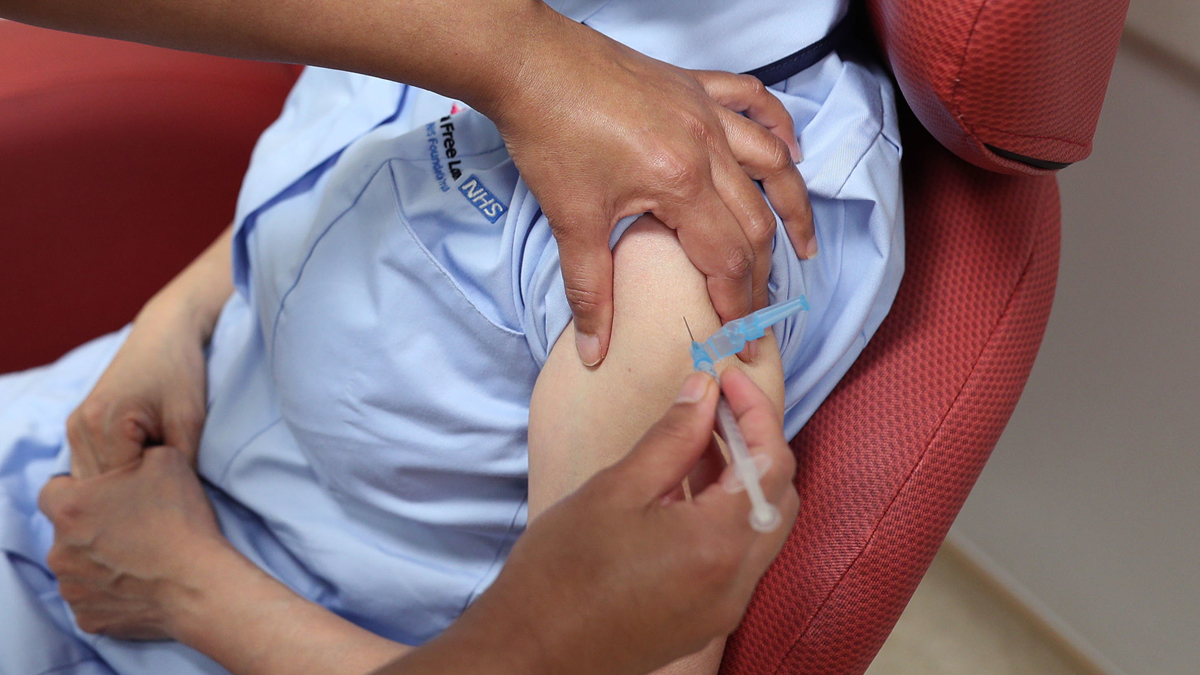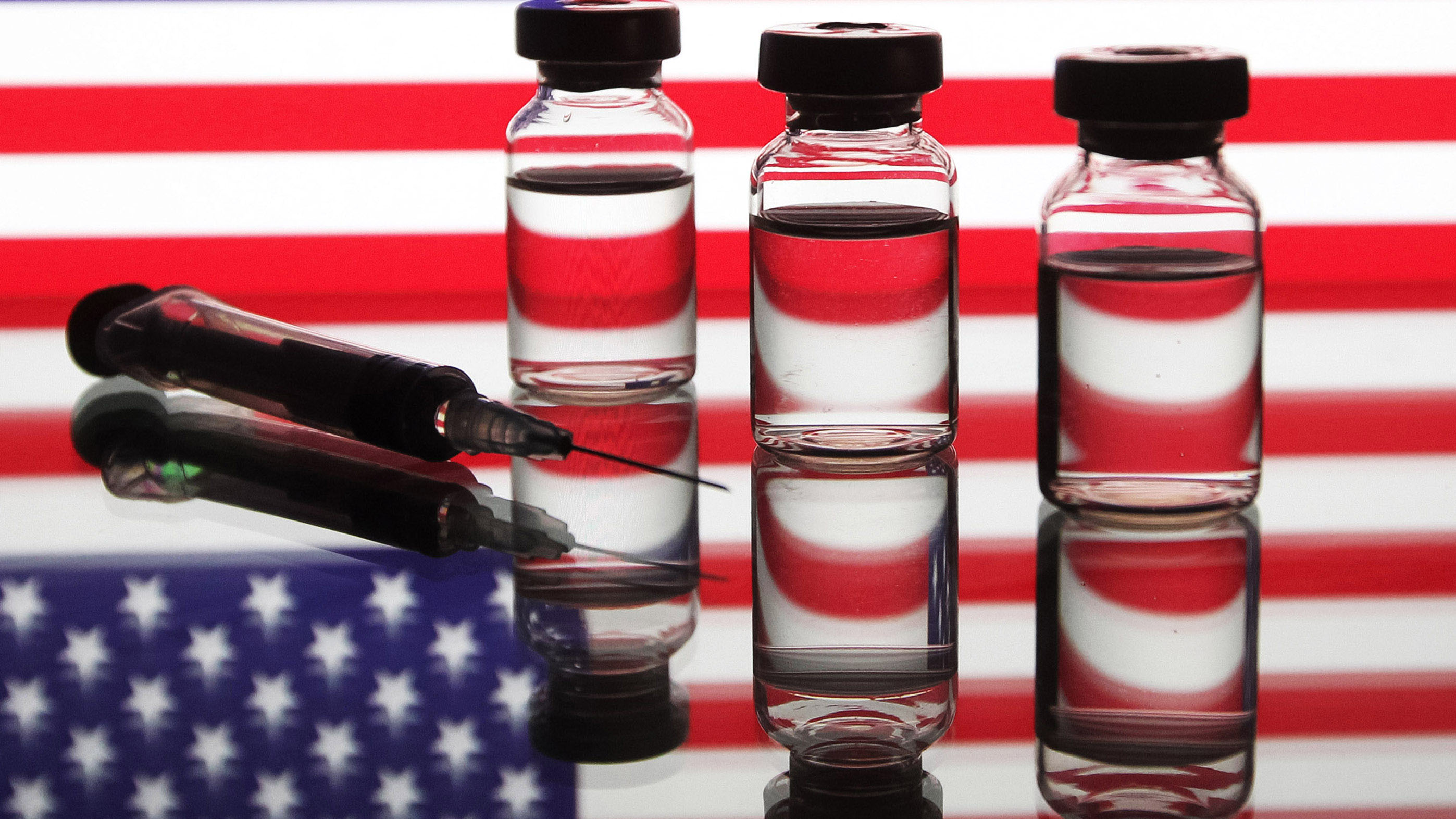The first coronavirus vaccine to roll out is being made by Pfizer and BioNTech and takes a new approach to protecting you from infection by using what is called messenger RNA or mRNA. Unlike a traditional vaccine, this new one relies on genetic code to stimulate an immune response against COVID-19.
Here are the details.
WHO
Pfizer Inc. a New York-based drugmaker, paired up with the German company BioNTech, to produce the first COVID-19 vaccine expected to receive emergency use authorization from the Food and Drug Administration. The FDA could give its OK by the weekend, with the first vaccines being administered almost immediately. Pfizer plans to seek full U.S. approval by April, Reuters reported.
WHAT
Like other vaccines, the one designed to protect you from COVID-19 prompts your immune system to produce antibodies, just as if you had been exposed to the virus.
How this one differs from traditional vaccines is in its use of mRNA. Instead of a weakened or an inactivated germ into your body, this vaccine injects mRNA, the genetic material that our cells read to make proteins, into your upper arm muscle. It teaches your body how to make the protein that triggers antibody production so if the real virus later enters your body, your immune system will recognize it, according to the federal Centers for Disease Control and Prevention.
A DEEPER DIVE
The mRNA vaccine contains instructions for making the distinctive spike protein found on the surface of the coronavirus and which attaches to a particular protein in our body. Once the mRNA is inside your muscle cells, they use them to make the protein and display it on their surface, according to Pfizer. Your immune system spots the protein, recognizes it as foreign and begins to make antibodies.
WHY DON’T YOU GET COVID-19?
The CDC notes that mRNA vaccines do not use the live virus that causes COVID-19. The vaccine contains instructions for making a harmless piece of just one of the coronavirus' 29 proteins and your body breaks down those instructions and gets rid of them once it has made the spike protein.
WILL IT AFFECT YOUR DNA?
No, according to the CDC. The mRNA does not enter the nucleus of a cell, which is where your DNA is.
IS IT EFFECTIVE?
The Pfizer BioNTech vaccine is 95% effective according to results of its late-stage trial announced in November, surprising some people. In August, Dr. Anthony Fauci, the White House coronavirus advisor, said that scientists were hoping for a vaccine that was at least 75% effective, but that 50% or 60% would also be acceptable. The vaccine is given in two injections, 21 days apart, but provides strong protection within about 10 days of the first one.
More Coronavirus Pandemic Coverage
IS IT SAFE?
People who have had serious allergic reactions are being advised in the U.K. not to get the COVID-19 vaccine while medical officials investigate whether two reactions on the first day of the vaccination program there were linked to the shot.
Experts say that allergic reactions are not unexpected with vaccines, but that they are usually rare and short-lived. In the Pfizer-BioNTech study, the rate was about the same in those who got the coronavirus vaccine versus those who got a dummy shot, 0.63% versus 0.51%.
WHAT ARE THE SIDE EFFECTS?
The shot could cause flu-like side effects that include sore arms, muscle aches, fever, fatigue, headaches and joint pain. Study results indicated most of these symptoms cleared up between one to three days after beginning.
NEXT UP?
The FDA is set to consider another mRNA coronavirus vaccine later in December, this one made by Moderna Inc., a Cambridge, Massachusetts-based biotechnology company. It teamed up with the National Institute of Allergy and Infectious Diseases, part of the National Institutes of Health. Like the Pfizer BioNTech vaccine, Moderna’s is more than 90% effective — 94.5% effective in its Phase 3 trail — but one key difference between the two is how they are stored. The Pfizer BioNTech one must be stored at minus 94 degrees Fahrenheit or colder, while the Moderna’s can remain at regular refrigeration temperatures of between 36 degree and 46 degrees Fahrenheit for 30 days.
Paula Cannon, an associate professor of microbiology at the University of Southern California's Keck School of Medicine, told NBC News that the difference was likely due to the way the vaccine’s synthetic mRNA was packaged. The molecule is fragile and is kept stable with a protective fatty covering.
WHAT OTHER VACCINES ARE IN THE WORKS?
Scientists were able to develop the vaccine for coronavirus so quickly because mRNA vaccines have been studied before for flu, Zika, rabies, and cytomegalovirus or CMV, according to the CDC. In 2019, BioNTech made a cancer vaccine that was administered to people with advanced stage melanoma and that matched the genetic profile of each individual cancer.



